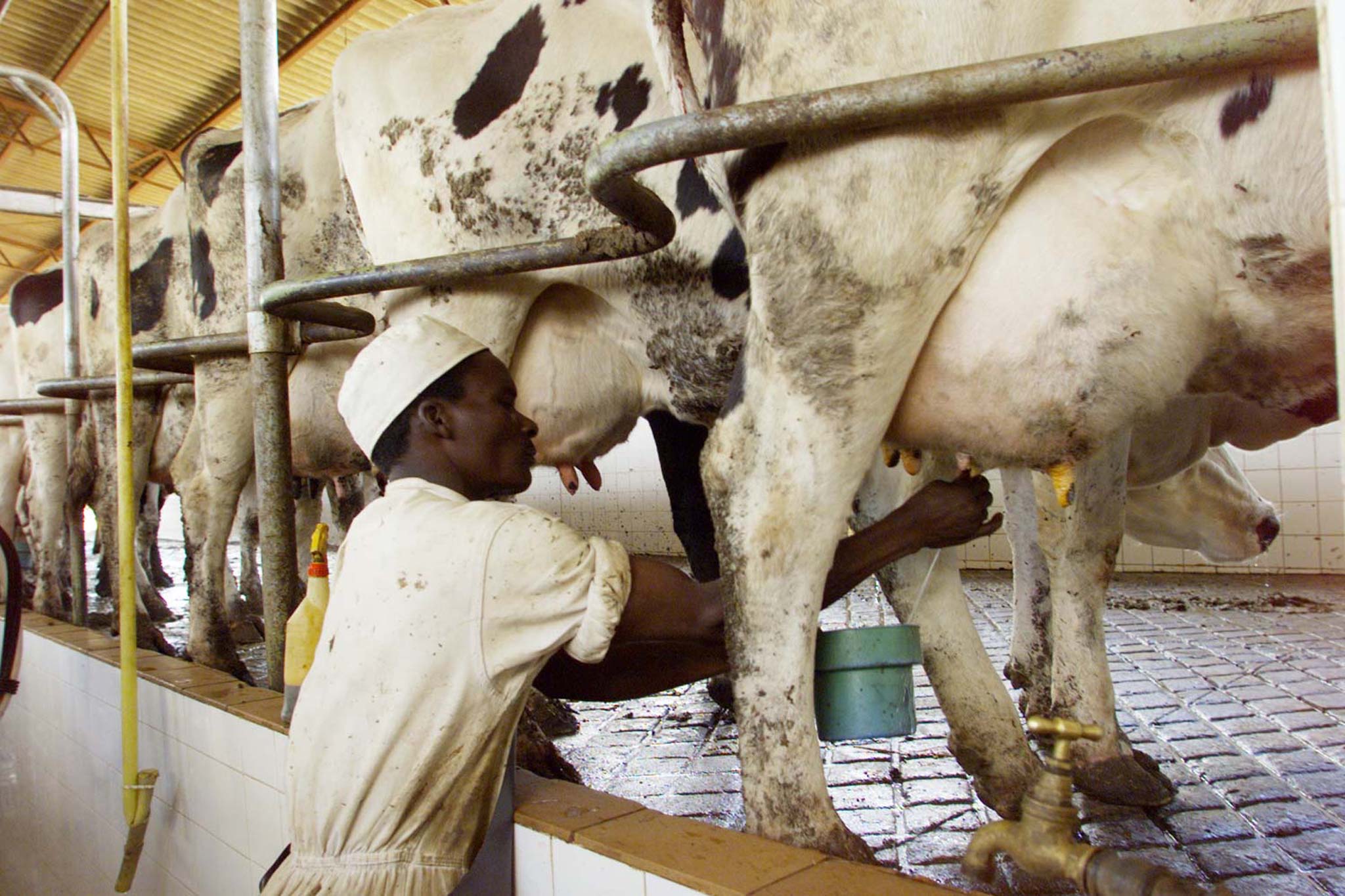Zimbabwe puts food giant Nestlé on the ropes

Swiss food giant Nestlé, like other multinationals, faces losing the right to operate in Zimbabwe under a controversial reform known as the indigenisation law.
The Zimbabwean authorities say 700 foreign firms have not met the legal deadline to sell majority shareholdings to locals, and face serious consequences. Nestlé, which has Swiss support, says it is still in talks with the authorities.
Under the indigenisation law, which was enacted in March 2010, any foreign company with assets valued at over $500,000 (SFr453,000) must sell 51 per cent to indigenous Zimbabweans.
Nestlé, along with Barclays Bank, Cargill and British American Tobacco amongst others, had until September 25 to comply with the law or risk losing their license to operate in the country.
The world’s biggest food group confirmed to swissinfo.ch that the Zimbabwean government intends to force it to sell 51 per cent of its assets, but gave few details.
“Nestlé Zimbabwe proposed an indigenisation plan in November 2010 to the Zimbabwean authorities which is in line with the principles of the Indigenisation and Economic Empowerment Act,” said Nestlé spokeswoman Melanie Kohli.
“Later we responded to the letter received from the indigenisation minister on August 18, 2011, and have remained in constant contact with the authorities since then.
“We are confident that our proposal will contribute to the growth of the Zimbabwean economy.”
On September 29 a Zimbabwean official declared that 700 foreign-owned firms had not complied with the law.
Anyone considering defying the law should prepare for “serious consequences”, including the “cancellation or suspension of their licence and heavy fines”, said Wilson Gwatiringa, head of the National Indigenisation and Economic Empowerment Board.
Buy from me
Nestlé’s recent relationship with President Robert Mugabe’s government has been difficult. The firm has been present in Zimbabwe for 50 years. It employs some 200 people in its factory in the capital Harare, which produces cereals and powdered milk for the local market.
In 2009, the factory was forced to close temporarily following pressure from government authorities to purchase milk from certain suppliers which were not under contract by the company.
Nestlé’s operations in Zimbabwe came in for severe international criticism, when it was learned that one of its suppliers was Gushungo Dairy Estate, owned by Mugabe’s family. The farm had been seized from its former owners under the government’s controversial land reform programme.
On October 1, 2009 Nestlé announced it would stop buying from the farm and the factory was re-opened on December 31, 2009 after assurances that the government would not interfere in its operations.
“Economic emancipation”
Mugabe’s government is championing the ownership law, dubbed the final phase of “economic emancipation”, after controversial land reforms targeting white-owned farms a decade ago. It says it is unacceptable that foreigners own the country’s riches.
The world’s leading platinum miner, Anglo American Platinum, number two producer Impala Platinum, and Rio Tinto, which operates a diamond mine, are some of the major foreign firms operating in Zimbabwe.
But critics see the law as a way for the government to squeeze cash out of foreign firms and say the money will go to top officials, not to ordinary people, who rank among the poorest in the world.
Prime Minister Morgan Tsvangirai, who is a partner in the fragile coalition set up two years ago after disputed 2008 elections, and who has clashed with Mugabe over the ownership policy, says the law is hurting investor confidence and stalling recovery.
“The warped indigenisation policy has eroded investor confidence and created a sceptical international business community that has developed a wait-and-see attitude,” Tsvangirai told reporters on September 29.
Little leverage
The Swiss foreign ministry says it is following the issue closely.
“Our embassy in Harare will support Swiss interests where possible,” said spokesman Stefan von Below.
But Nestlé’s future in Zimbabwe remains uncertain and Bern’s relationship with Harare offer’s few advantages.
Switzerland imposed sanctions on Zimbabwe, which came into force in March 2002, following allegations of electoral fraud and human rights abuses.
The sanctions include an embargo on the export of military materiel and items that could be used for repression, and the freezing of assets belonging to Mugabe and his immediate entourage.
Some 198 people and 31 companies are covered by the financial sanctions and a travel ban forbidding entry to or transit via Switzerland.
Population: 12.6 million
Life expectancy at birth: 47
Human Development Index: 169th out of 169 countries
Gross domestic product per capita: $187
Percentage living below $1.25/day: 59% (2006)
Public debt: 234% of national gross domestic product.
Until the 1980s Zimbabwe’s economy was one of the strongest in Africa, especially thanks to its reserves of coal, copper, nickel, gold, iron, platinum and diamonds.
Hyper-inflation hit 231 million per cent in 2008 but has fallen back into single figures thanks to the adoption of multi-currencies in 2009.
The economy is registering its first growth in a decade: 9% in 2011 and estimated 7.8-9% in 2012.
Zimbabwe’s 87-year-old President Robert Mugabe has dismissed reports that he is ill. But US diplomats cited in recently released WikiLeaks cables have said they were informed he is suffering from prostate cancer. Mugabe’s party denies the cancer claims.
UN statistics (2010)
Switzerland refused to recognise the independence of Rhodesia in 1965. Bern, like other states, backed UN sanctions against the regime but banned the export of military materiel.
In 1980 Switzerland recognised the independence and constitution of Zimbabwe and opened a consulate in Harare.
Since the late 1990s the country has been experiencing a serious political and economic crisis. In the past decade Switzerland has frozen bilateral relations with Harare and joined the European Union and other nations in imposing sanctions for electoral fraud and human rights abuses.
The Swiss embassy supports limited projects to promote human rights and the environment.
(Adapted from Spanish by Simon Bradley)

In compliance with the JTI standards
More: SWI swissinfo.ch certified by the Journalism Trust Initiative















You can find an overview of ongoing debates with our journalists here . Please join us!
If you want to start a conversation about a topic raised in this article or want to report factual errors, email us at english@swissinfo.ch.